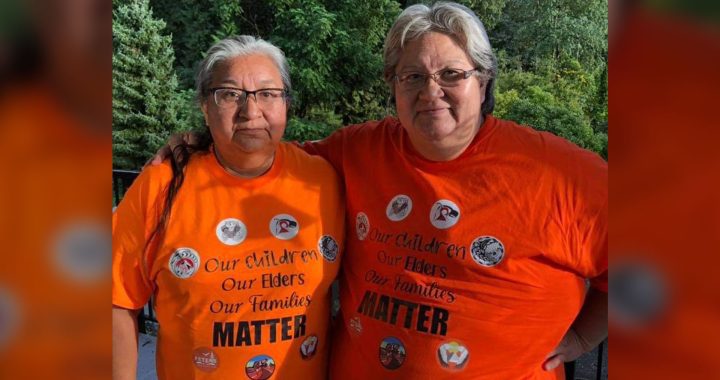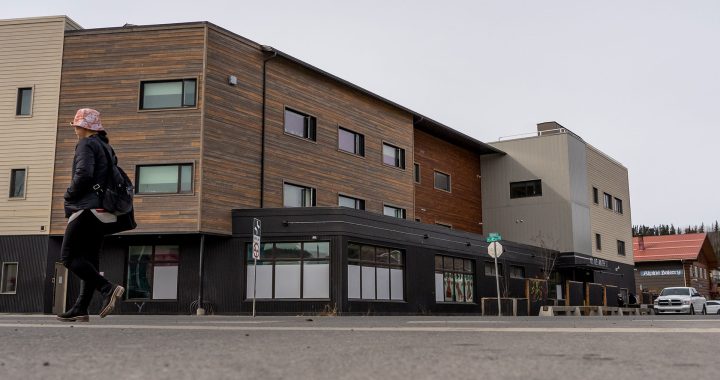The Mi’kmaw MP from Nova Scotia took his arguments against proposed federal electoral boundary changes in the province before a Parliamentary committee on Tuesday.
“The overwhelming question I get asked is, ‘How could they do this,’” Jaime Battiste told the Procedure and House Affairs committee. “In the era of UNDRIP (United Nations Declaration on the Rights of Indigenous Peoples), in the era of reconciliation how can a commission, without any consultation, or any hearing from that Indigenous community, remove the only Mi’kmaw speaking member for parliament, the only Mi’kmaw member for parliament ever in the history of Canada to be elected? Take away his home community.”
Under the proposed changes put forward by the Nova Scotia Electoral Boundaries Commission, both the Eskasoni and Wagmatcook First Nations would be removed from Battiste’s riding of Sydney-Victoria and put into a new larger riding of Cape Breton-Canso-Antigonish.
Battiste won Sydney-Victoria by just over 1,000 votes in the 2021 federal election.
Federal riding boundaries are redrawn every 10 years to reflect population changes within a variance of 25 per cent while at the same time taking note of such things as communities of interest and historic boundaries.
According to the Nova Scotia Electoral Boundaries Commission webpage, the population of Sydney-Victoria decreased by just under 18 per cent between 2012 and 2022.
Each province has its own independent electoral commission of three members – a judge appointed by the chief justice of the province and two other members appointed by the Speaker of the House of Commons.
In Nova Scotia, the commission members are Justice Cindy Bourgeois who is the chair and university professors Louise Carbert and David Johnson.
Battiste wasn’t the only Nova Scotia MP who voiced concerns over the proposed boundary changes to the committee on Tuesday.
Fellow Liberal MP Sean Fraser also said minority groups within his riding of Central Nova were not properly consulted.
“On the procedural side, I was really disappointed frankly, although I don’t think it was a mistake made on purpose, that certain communities including the Pictou Landing First Nation community and important historic African Nova Scotian communities that were not given an opportunity to give input,” he said.
Another Liberal MP, Lena Metlege Diab said the changes would do serious harm to the diversity of her constituency of Halifax West.
“Halifax West is the most diverse ethnically, linguistically riding of the province and has been for decades,” she said. “They’re decimating that.”
Not all Nova Scotia MPs are against the proposed changes though.
Conservative MP Rick Perkins, who represents the riding of South Shore-St. Margarets, said Nova Scotians had plenty of time to voice their concerns in a series of public meetings prior to the commission submitting its report in November.
“All residents of Nova Scotia had ample time to share their views with the boundary commission during the consultation process in the spring which ran for several months,” he said. “The commission vigorously advertised their locations, times and dates of the nine in-person public hearings and one virtual meeting.”
But when it comes to Indigenous communities, Battiste said this just isn’t good enough.
“Posting a public notice does not count toward Indigenous consultation. If you make a decision that adversely impacts their rights, their ability to speak the Mi’kmaw language to their Mi’kmaw MP in a comfortable way in their own community, is something that they have the right to be heard if it adversely impacts them.”
The procedure and house affairs committee will now submit its own report, including statements it heard on Tuesday, back to the electoral boundaries commission for consideration.
The commission will then issue its final report to the Speaker of the House of Commons.
From this point, MPs have 30 days to submit written objections to the Procedure and House Affairs committee and the committee then has 30 sitting days to report back to the House of Commons.









